Pavlo Kulinskyi
Is he a real philosopher or a real troll?
This is the question that comes to mind after a day of volunteering in Moshchun with our activist Pavlo Kulinskyi.
He is an IT professional who is used to looking for bugs in the system. He believes that it’s time to ask difficult questions. He also advocates relying on his own principles and values.
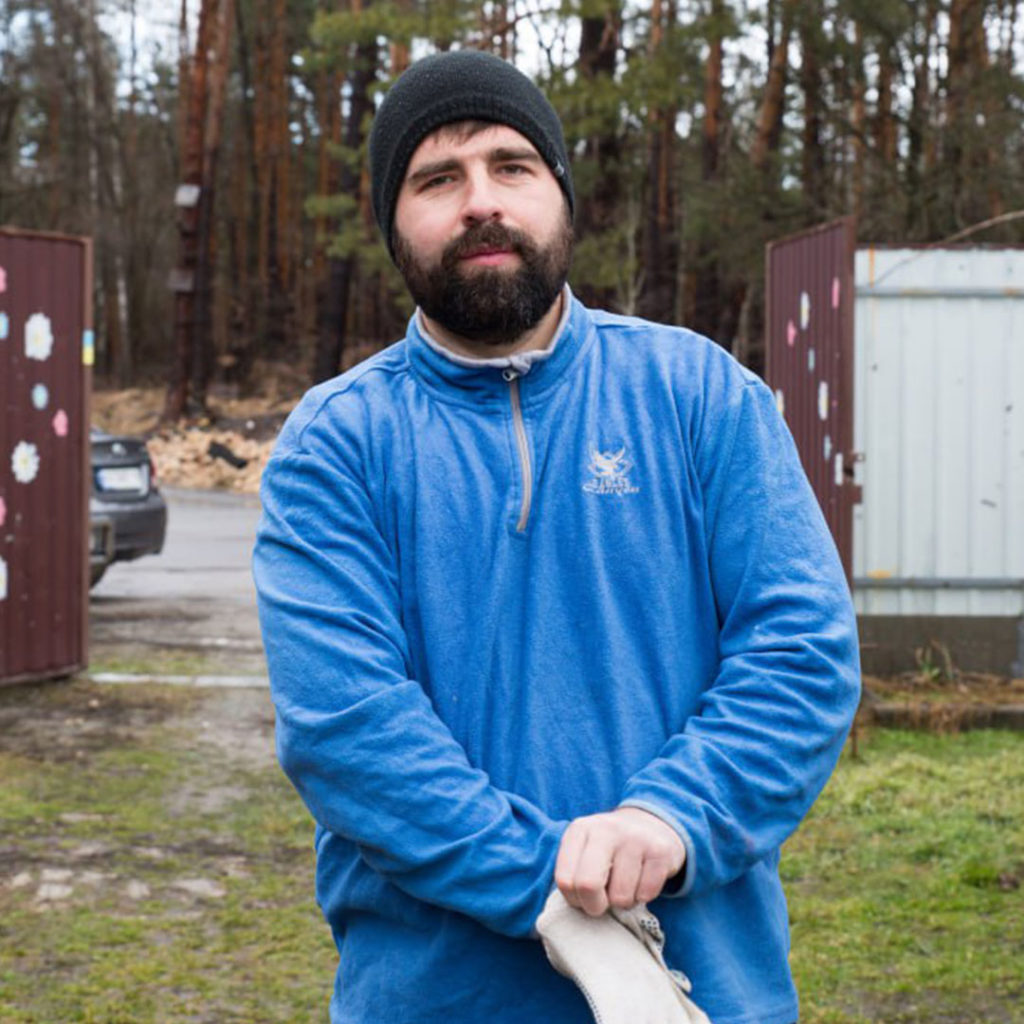
In the #B50heroes interview with Pavlo Kulinsky, read:
- whether it is so easy to get into IT and become a tester;
- what principles of the B50 community he respects;
- how to win an argument with him (or at least not cry afterwards);
- why he plans to continue living abroad.
| Name | Pavlo Kulinskyi |
| City | Stare village, Boryspil district |
| Age | 38 years old, birthday – July 3 |
| Profession, occupation | tester, co-founder and director of Gersa LLC |
| Hobbies | football, traveling |
| Sea or mountains? | depends on what mountains and what sea |
| Childhood sport | football, volleyball, basketball (played for school) |
| Favorite food | any tasty, never get bored of potatoes and pasta |
– Pavlo, where were you on February 24? How did you find out that russia’s large-scale invasion of Ukraine had begun?
– In Boryspil, in my apartment. My wife and I woke up to the sound of rockets flying. We are three kilometers away from Boryspil airport in a straight line. There were several powerful explosions. The first explosion woke us up. During the second one, we ran out to the balcony (our windows face Belarus) and saw missiles flying over us…
We were prepared. At about 4:40 we woke up from the explosions, and at 5:20 we were already in the car with all our things. We were already leaving. Documents, money, and basic things were packed.
My wife was 9 months pregnant (she was due at the end of March). If not for this, we would have left before the war, most likely.

– Did you plan to move at all or were you worried about a possible invasion?
– I realized in December that something was going to happen. In the fall, Budanov said he was preparing for the next six months. The Americans started talking… And every time they say “there will be an offensive” but there is no offensive, they “burn” their reputation. Working with the Americans, I learned well that they are not the kind of people who would destroy their image like that. At my workplace, I started to push: prepare documents, money, evacuation routes. They said I was being paranoid, and then they finally did something.
But I felt it much earlier, back in the Covid days… When I was walking with my son, I thought: “Why do I have such happiness – that I can work and be with my family at the same time? It will be taken away from me somewhere.” It was a purely primal moment.
The second is just a story. They said that russia was in a bad financial state. Hell, did they go to Chechnya in that financial state? And Afghanistan? What about tsarist russia? They have nothing to eat, there is a famine, and they declare a “crusade” for someone.
– With your things in the car, where are you going?
– To the Romanian border. The real plan was to transport them there, arrange their life for a couple of days, see what was happening here (conditionally, whether Kyiv was taken or Zhytomyr region), and then start from there.
But a few hours later, the borders were closed for men. That’s why my wife moved first to Romania and then to Poland (the people we had agreed with were waiting there). On February 28, I returned to Boyarka, to my kum (the child’s godfather – ed.). We planned to go on the 26th, but Kyiv region was closed for a 3-day quarantine.

– How did people at work react to martial law? Did they not claim that you were paranoid?
– At first, I was “laughing” at the company. They told me: “We have a plan! We have several plans in case of war.” But when I asked them to tell me about these plans, I only got answers that they would be proven after the invasion and would depend on the scenarios. I insisted that when it all starts, there will be panic and all communication will be neutralized, so how are you going to communicate with people remotely – there was no answer. If there is a plan, then it should be communicated to the people who need to use it BEFORE, not during.
At first, we were given a communication, like save your families. We were paid our salaries immediately for February, and very quickly the money was transferred for March. If you have a family going abroad, you just make an application and they gave you $1,000 per family + $500 for each child, paid for a hotel rental for 2 weeks. Later, they organized evacuation buses from Kyiv and evacuation locations locally (in Lviv and the western regions).
The owners of the company are russian citizens (after 2014, they received Swiss passports and re-registered there), so I was expecting some kind of “trick”, but the company worked out.
If I go somewhere else and I have an offer from my company (even in some ways worse), I will most likely stay. Here they bought me completely: not in terms of money, but in terms of approach.
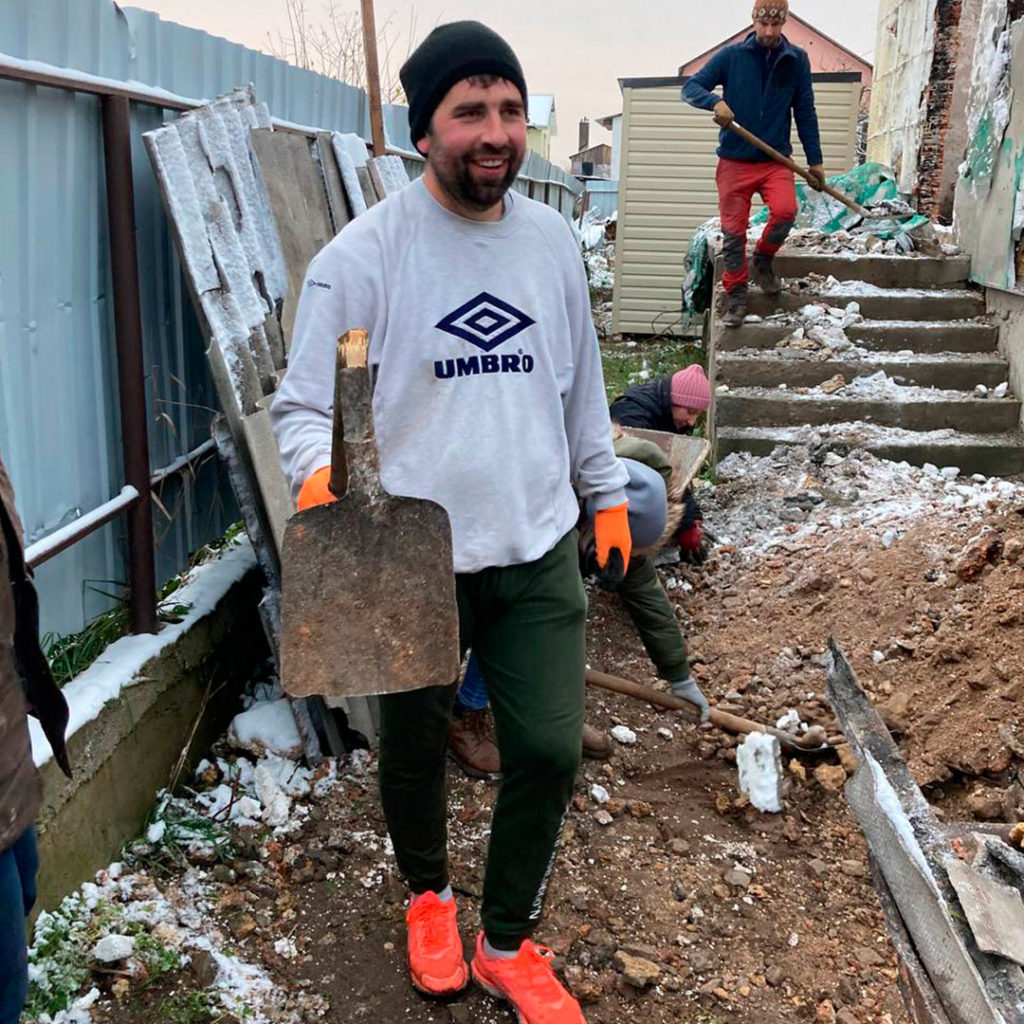
– What did you find yourself doing when you returned? Did you quickly return to work?
– My kum and I went to the military enlistment office. Since they were interested in people with experience in handling weapons, we were enrolled in the territorial defense and released. I realized that I had nothing to do with combat units… We started looking everywhere for trenches to dig, for something to transport (we have a tractor with a shovel and a small truck). Civilians and soldiers were taken away. Someone asked us to take something to the east, someone asked us to help a brigade.
Then there was an organization that delivered 7-8 thousand meals a day, and they needed buses to bring vegetables, cereals, and lunch boxes to the cooking points. I signed up for it, but later it disappeared, they switched to some kind of funding.
– You mentioned that you had nothing to do with combat units. But as far as I remember, you once told me about your studies at the military institute…
– During my 5 years at the military institute, we fired a rifle twice and a pistol three times. As for all other skills, I am a radio engineer, a “soldering iron”, but we studied everything in theory. For 5 years, we did not have a single practical task where we used a soldering iron, we did not even have practical ones. We had no infantry combat, no combat coordination, no tactical medicine (there was not even a subject like that).
This institute was for the children of generals, so that they would have a diploma from Shevchenko University. We had such military specialties as political science, psychology, translation, finance (90% of the cadets were here) and two specialties with 10% of the cadets – cartography and radio engineering.
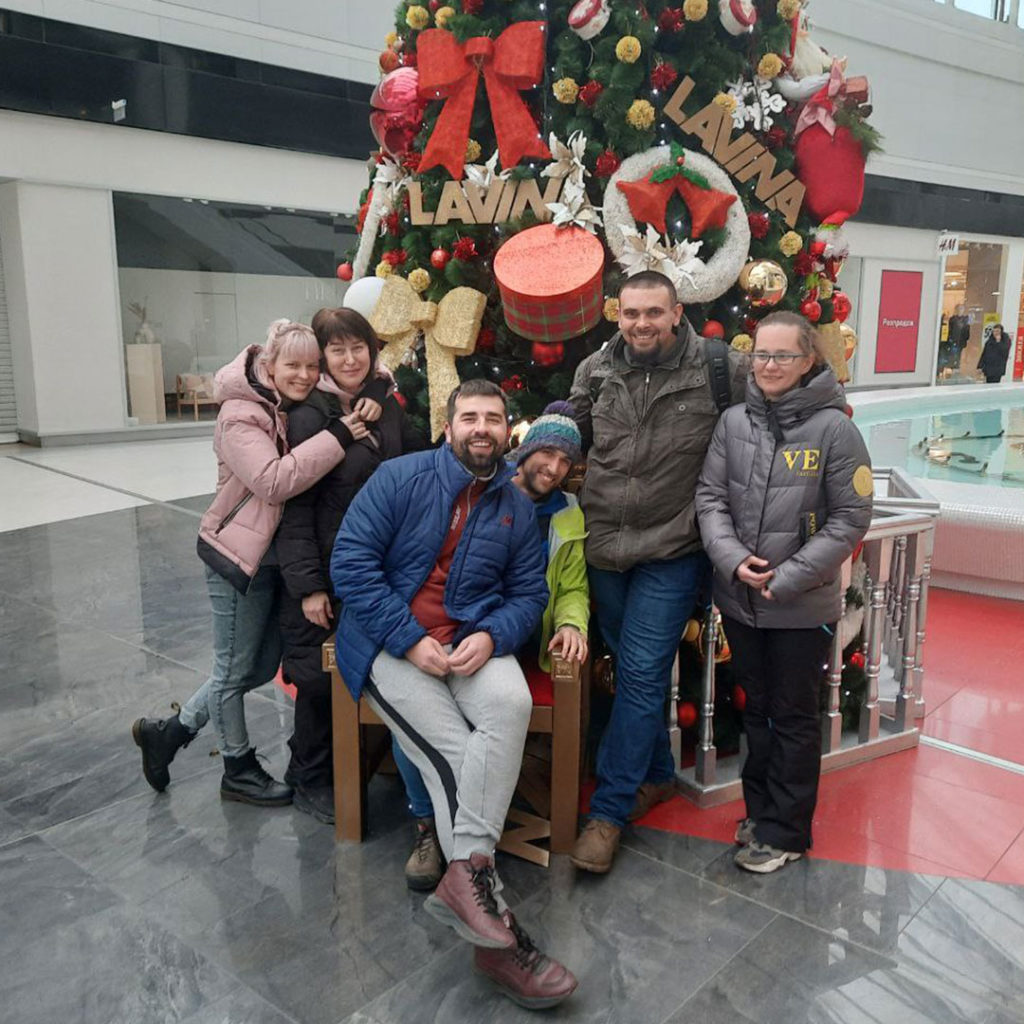
– If not in the army, then among volunteers. By the way, how did you find out about B50? And do you remember your first day of volunteering?
– I googled it on the Internet, and the first thing I got was B50. I think we first worked at 4 Skushnikova Street. My health is fine, I can handle both heat and cold. We started to work, and my head started to hurt (it had headaches up to 10 times in my life). I went and laid down on the grass until it went away. Redhead Nastiia was around then, and she says that day she felt so sh*tty too. I don’t know if it was magnetic storms or what was going on then. Then, like everyone else, I felt crepitus. And I slowly got involved.
I constantly evaluate how the processes are set up, what the organization is about. Okay, the processes suit me. Of course, there were some misunderstandings. I found out that you are a PR person, Ruslan is a lawyer. How the f*ck can you organize the rubble removal process without mistakes? It’s not like I got into a construction organization.
Of course, I wanted to do more, but later we talked with Ruslan and I understand that there is no funding as such, he doesn’t want to be under anybody’s thumb. It would be cool if a tractor would come by and rake everything up, and we would pick up the remains and take the bricks away. If there was a team of builders and they built a house. Everything rested on objective possibilities. I decided to go regularly.
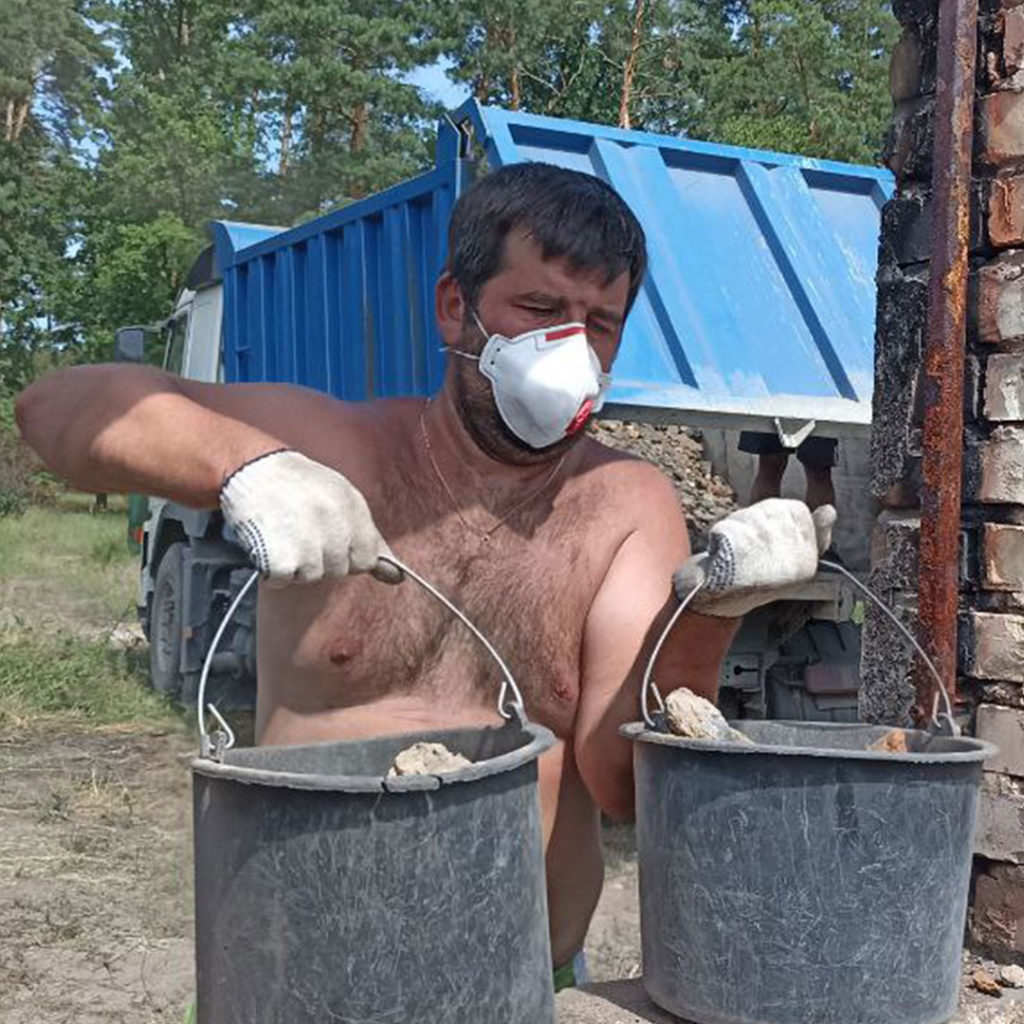
– You are one of the top 10 volunteers in terms of the number of trips made last year. What motivates you? What thoughts do you come and go from this volunteering?
– In my understanding, everything is important, not at the level of principles. This is the base that allows you to be as flexible as possible. In terms of global issues, I come back to my principles: Ukraine is a “long game”. This is one of the principles that we lacked as a nation.
We have already tried all the shortcuts: Kuchma, Ukraine without Kuchma, the pro-Ukrainian Yushchenko, the bandit “strong businessman” Yanukovych, Poroshenko, Zelenskyi… You see, all this faith in the king who will come… On the one hand, we believe in him, but on the other hand, we shift everything to him.
And I mean “in the long run,” you know? If you don’t want to be in the sh*t and want to get out of it, you have to row faster, because all countries are doing it. We are in worse conditions, worse potential, worse stage of development… How can we cover all this? Work, work, work.
I’ll give you a simple example – Moshchun. All of Kyiv knows: there are battles, the village is 80-95% destroyed. It’s been a year of war, Kyiv region was abandoned in April. Moshchun is not rebuilt! Not unreconstructed, but unassembled!!! If the war hasn’t brought you to your senses, the rockets that everyone hears, then the end of the war will give you an impulse to do something, not to celebrate, because Europe will respect you, because we are the winners?

Let’s take the B50 chat, there are 760 people there. These are the people who have already acknowledged that they will help, and have been added to the volunteer chat. How many of them signed up over the weekend? This is the movement of a nation that has not yet received the “winner’s syndrome”.
Everyone who decides to change Ukraine must understand that this is a hard, long, thankless job, which, with high probability, no one will know about… We must understand that perhaps our lives will be just like the lives of those thousands of Cossacks who died in the Zaporizhzhia Sich, and no one has ever known about them…
– You are talking about quite global, strategic things now. What exactly shaped your thinking? What factors influenced it?
– Well, you know, this is both a plus and a minus. How much it consumes internal resources and time… Maybe it would be better to make 10 mistakes and get to the result by the method of mistakes than to sit around and stew all the time.
People say: “I reassessed my values in 2008, I’m doing it in 2014”. Bullsh*t! I am constantly reassessing my values! I’ve done something, I’ve done it well, and then I look at how it could be done faster, better, with fewer resources.
I’ve had this since childhood. Perhaps because of my parents’ upbringing. Although my parents lived in the countryside, both of them had higher education, they thought at the level of processes. From the 5th grade, I went to clubs, from dancing to physics. They always said: “Just go and have a look. If it’s not your thing, you’ll quit, you won’t go. If it’s yours, you can do it if you’re interested.”
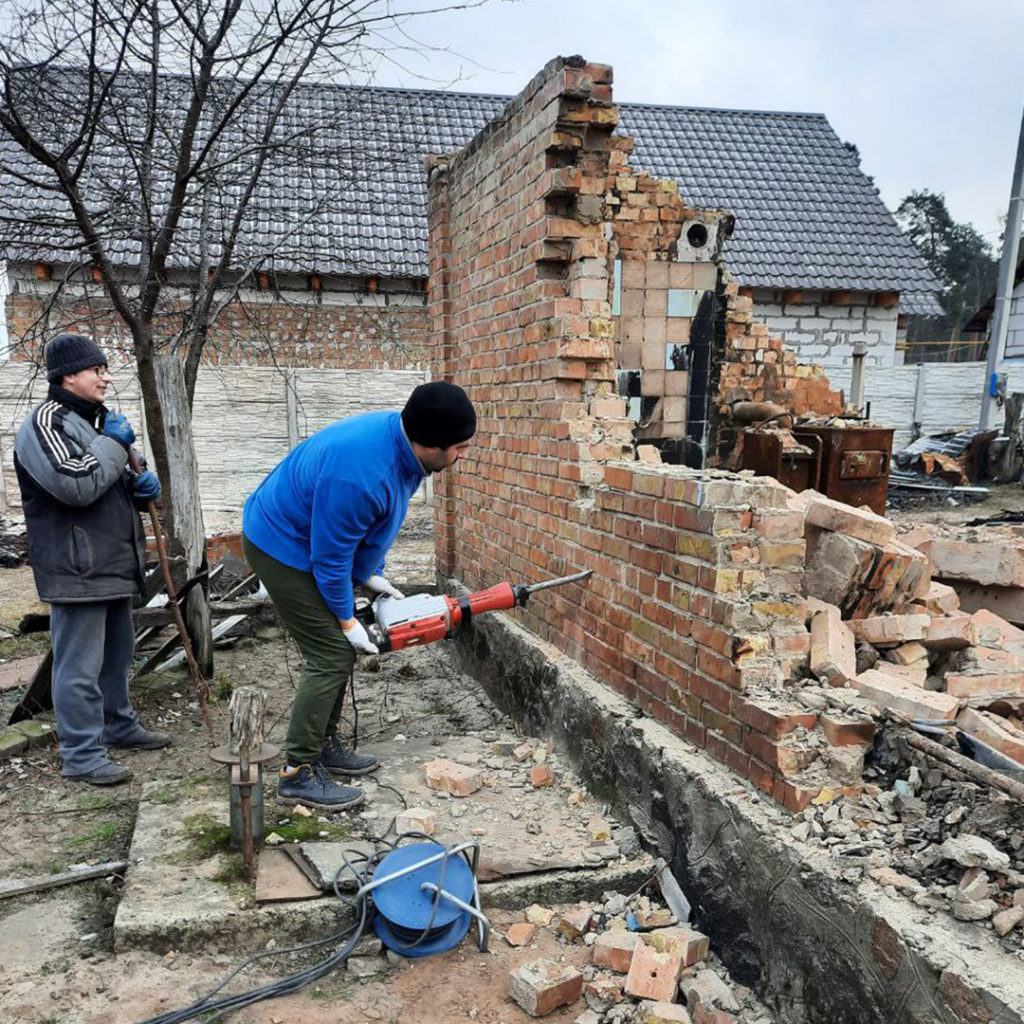
For me, for example, it was wild when people didn’t plan to go to a university after high school. It’s like the next stage of development. Like, there is one level of salary in the village, and another in Boryspil or Kyiv.
My superpower is to find weaknesses in systems and overcome some obstacles not due to my own skills, but due to the shortcomings in the system. This is a consequence of the fact that I am quite lazy. If I’m given a task, I’d rather find the weaknesses of that task than get better at it. I’m a cheater, but I’m talking about quality.
– It’s interesting, because your work in IT, your specialty, is closely related to this “search for weaknesses”…
– I’m a tester, and I’ve been involved in this for almost 10 years. I was “led” here. The first time I was drawn to it was in 2008, during the crisis. I realized that I needed a fairly young profession that had prospects for development, whose market (even today, I’m sure) is at a very small start. For me, it sounded like this: my family should not suffer at least from the dollar exchange rate in this country.
The essence of my profession can be explained by the example of borsch (Ukrainian dish – ed.). You are a cook, you prepare a dish. You pour it in and ask people: “Is it tasty?” And “tasty” is the task of the testers. How will it be used? Under what conditions? Where? What are its strengths and weaknesses? Based on this, decisions are made whether this borsch can be taken to some chef shows or whether it needs to be improved and made better…
The developer (cook) can do the testing, but it’s expensive. The second aspect is the blurred eye. It’s his “brainchild,” he doesn’t want to see any flaws. And the third is the mindset. He is focused on creation. A tester is someone who will poke you and say, “Look, it’s weak.” Here, you need a destructive mindset: not to create, but to shake, to break.

I had two projects globally. The first was from an American telecommunications company (the largest in the United States). We tested receivers (when you buy cable TV, you get this “box”). They have a lot of features: you can record the news or a program, rewind an hour and a half if you missed something, and there are various apps where you can buy a movie.
And the second project (I’m working on it now) is also an American company that provides services in drilling and development of gas and oil fields. They do exploration, where to drill, where to cement the well. And this is where our app works at the cementing stage. It’s a very complicated scheme, because they lower the pipe, cement it, then drill further and cement it further.
– And to make a “tasty” drilling app, you have to know what you’re doing (in addition to your IT skills), right?
– I have to understand at some level. I understand that the fluid should be pumped faster if the pressure is increased (the principle of a syringe: slowly pressing – the jet goes slowly, hard pressing – it goes hard). I can pick up on these trends. We are also given a domain specialist who understands.
Everyone thinks that a programmer should only know a programming language, and testers should sit and click something. But no! If it’s finance, you will understand finance. If it’s medical devices, if you don’t know an ultrasound machine, how will you write software for it?
– And yet, the profession of a tester is often called the simplest, easiest way into IT. Is it true or a stereotype?
There are nuances! On the technical knowledge side, testing is easier because the developer must know at least one more programming language. But where it is easier, the competition is higher.

– Are the debates with other volunteers that you sometimes initiate at the locations also related to finding bugs, only in people’s minds?
– I always say: “You can stop me at any time”. Because I know that I can get carried away. This applies to everyone. You can say, “I feel bad” or “I understand, maybe you have a rational point, but emotionally it touches me and I’m not ready to continue this now.” I’ll stop.
The second point is that in any argument, I do not move the boundaries of the conflict. You can look at my correspondence. I very rarely take any step that expands the boundaries of the conflict. If you tell a lie, turn personal, have some guesses or “it could have been…”, your arguments are already over. Then I answer you: “It could have been that way.” We waste time on the obvious.
When a person starts zigzagging, they are not ready to accept my position. I realize that I need to give them time to back off. Often all these moments happen because of unconscious arguments. But, you know, it’s war. We have no time to “think”. There is no time to slow down, to explain basic things. We were attacked by a stronger, more organized, more prepared enemy.
I have a clear gradation of who I talk to and what I talk about. There are people with whom I do not conflict. I don’t argue with Yuliia, I don’t argue with Yana, even with Chaika, although she “can shoot”. I don’t discuss hot topics with Vitalik. It’s a principle, a responsibility. I can raise my voice (this is my natural thing). Just so you understand, when my wife first came to my family, she cried. We were discussing something, debating, and she thought we were fighting.
If you get into a discussion, hold on! And have the strength to say stop. I had a similar situation with Oksana. She said: “Listen, let’s pause. I’m not in the subject.” So listen to me, but don’t forget about fact-checking, reflection, empathy, introspection!
I have no traitors in this circle (until they prove otherwise). I don’t argue with these people to prove that I am good and you are bad. No, we are all in this together! We just spin each in our own way and, as a result, we have a discussion in order to make things better here.
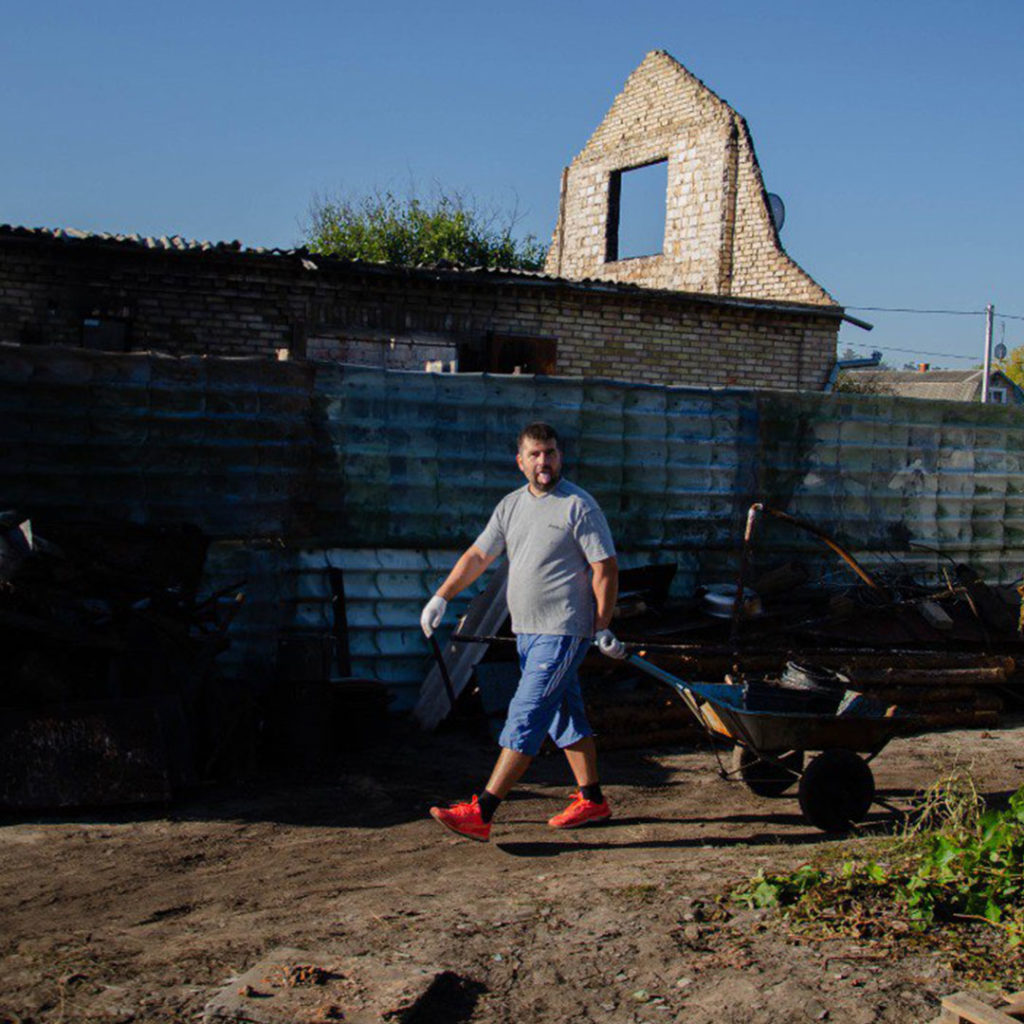
– How do you see “better” for Ukraine?
– Everything starts with yourself. But changing yourself takes a minute, changing your family takes a month, changing your relatives takes a year, changing your country takes, well… hundreds of years. How old is Ukraine after the collapse of the USSR? 30 years. For history, 30 years is a pfft… One paragraph, and sometimes one paragraph in a textbook. But for me, it’s my whole life, and it’s best when I’m young, strong, smart, you know?
During the rubble clearance, we are discussing, and I say: “Good people, understand: if you want to live a good life and for your children to live a good life (well, you are betting on living a good life yourself), then you need to leave this country.”
If you are willing to put your life and the lives of your children on the altar of the country’s development, then you stay, don’t whine, and work, you know? You have no days off for the next 10 years. And to be completely frank, you have no life.
These days, the conversation is literal: “I want to go back to the 23rd”. And what comes after the 23rd? The 24th. Do you want to go back to the eve of the war or what? In every sense, you know? February 24 is a consequence of the life of the previous 30 years. “That’s not my headache,” “I earned my living,” “I’m doing well,” “What’s going on in the government is none of my business.” I do not condemn these people – I just reflected on our mistakes. The war was a screenshot of our real life over the previous 30 years.
And so, as an answer to the question that if I want to live a normal life and my children do, I have to go abroad, and everyone has to do so. Leaving does not mean betrayal in my understanding. Let’s do the math, for example: I stay in the country, my salary is $1,000, I save $500 for my family, I save another $100 for my mother (because she has a pension), I save $300, and it turns out that you can invest $100 a month in the country. And now let’s say I go to the United States, earn $10,000 a month, spend $3,000 on my family (life is more expensive there), $2,000 on my mother, and save another $3,000. How much do I have left? That’s right, another $2,000. On the math side, you got up and went to the States.
I say to our volunteers now: what is the experience of your children knowing a rocket explosion? What positive results does it bring? “They will know what war is”. If you, as parents, don’t teach them at the level of principles that war is sh*t, then there is a whole nation next door, 140 million people, who are oppressed, utilized and destroyed by their own rulers in commercial quantities, and they still don’t understand! Or is your method to show how missiles explode? If I haven’t explained this at the level of principles, what kind of father am I?
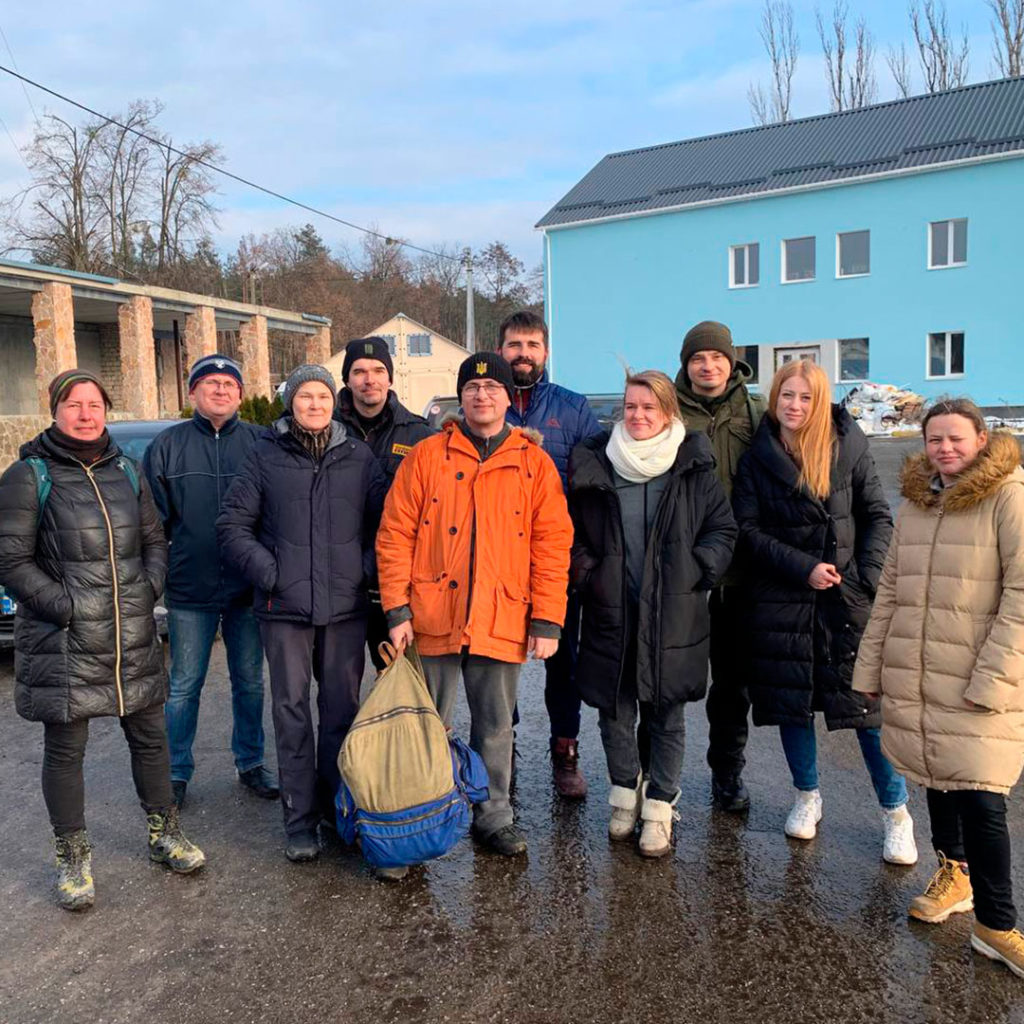
– You are now saying such worldview things, it is clear that you have a certain social consciousness. Did you do any volunteering or civic activism before 2022?
– I took part in both revolutions (the Orange Revolution and the Revolution of Dignity – ed.), I went to the rallies when decent people were arrested or pressured. But it was a personal decision, not a part of any public organizations or political projects.
I understand a lot of things, but don’t forget that I’m lazy, seriously. Before doing anything, I have a cyclical process of reassessing my values and approaches. That is, everything I do now is a result.
I have defined my mission: I am not a driving force, I am not a source, I am more about support, you know. I can explain, I can help, but I don’t sacrifice my life, the life of my family. I have decided for myself that if I have the opportunity after the war is over, I will leave this country, I will go to a country where all this is realized.
I have already chosen my family, it comes first. I can ruin my life, partly my wife’s life (although I have no right to do so, but she chose me and should understand who she met). But my children did not choose me. No one asked them, “Makar, Illia, do you want Pavlo to be your father?” So I take on a zone of responsibility, and as an architect, I build a definition of what it means not to ruin the lives of my children. This is the right to normal development, to a normal quality of life.
I can’t leave my family and go to the B50 on the back of a loss. So I have identified some resources that I am ready to invest in. I understand that I cannot be a pillar of the movement (at least for today), but I can be a support. I will help, I will come, I will plan, I will do.
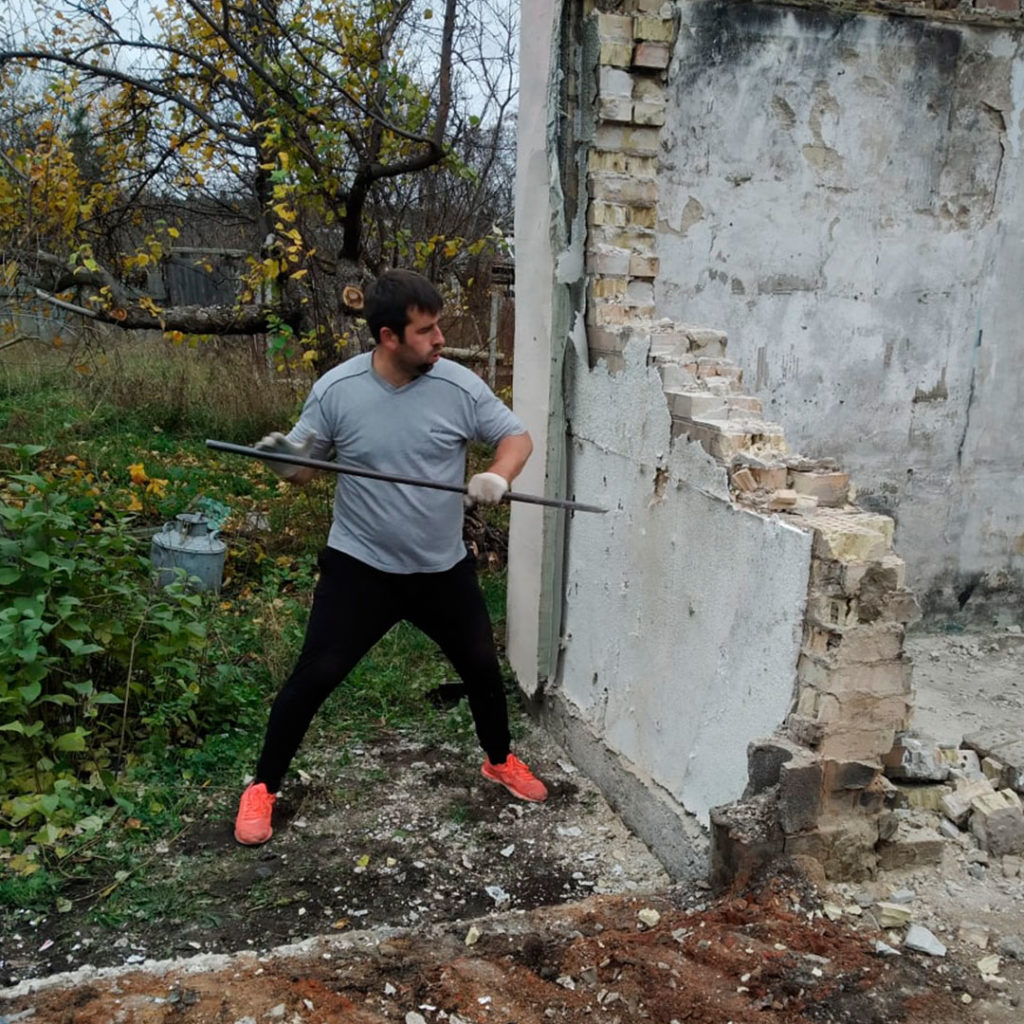
– By the way, about the family. They are still far away. How often do you see each other, do you call each other?
– I have two boys. The younger one was born in March, and at the end of November we saw each other for the first time in the Lviv region. When I saw the child, it was a positive emotion, but it’s not the time to fall into this emotion, because it is adjacent to negative emotions, that they will leave anyway, that the war will not end. It’s quite restrained…
I block a lot of emotions now to keep a cool head. I realized that they would knock me out: someone was raped, someone was shot, someone was captured, surrounded, killed…
I read everything, watch all the videos. But I block my emotions. I don’t need to feel to realize that war is bad. Bucha did not shock me, I knew who the russians were. I have no illusions about Mariupol, Melitopol, Nova Kakhovka, which are under occupation. Because when you open any book about the war involving russia or the soviet union (for example, I advise you to read “War Will Write Everything Off” by Leonid Rabichev). And you see how Austrians and Germans were raped. From what high moral values should these people evolve, where did they evolve to some kind of sane level?
Due to the uncertainty of the future, I try to integrate myself into the lives of children as little as possible. There is an aggressive mobilization going on now, someone was taken away today and killed tomorrow. I want to integrate so that they can tell me about it later: “This is a boy Petro, he will never see his father, with whom they spent so much time”? I understand that this is bad, but sometimes we choose from bad options because the others are worse. It’s better to let it hurt that we didn’t communicate with them much now.
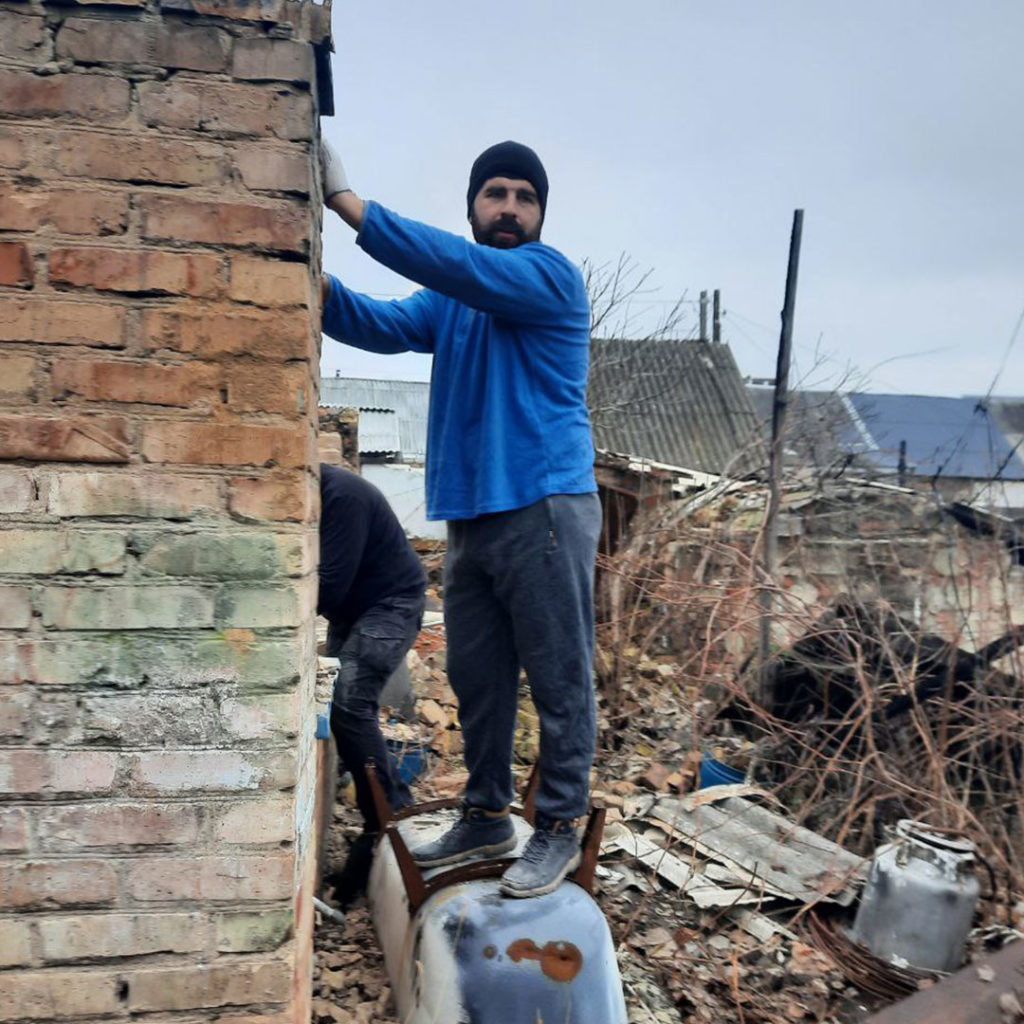
– How do you see the future in a few years – Ukraine’s, the war’s, your own?
– For all my rational benefits, I have an inner world that the real world cannot reach. And in this ideal world, I can do anything. I am a football player, a loving father, I have a perfect family. And that’s why I can live in low conditions now, I’m happy to eat potatoes. My internal generator keeps me going.
The war is the easiest thing – the head of the Defence Intelligence of Ukraine Kyrylo Budanov is not wrong. He said that at the most, mid-summer, we will reach the borders of 1991.
We will not fall, at least not due to the processes that are currently taking place in Ukraine. Internally, a process has already begun, such as “If those guys are standing there, then I have to stand somewhere when my time comes.” We are no longer traitors, but we are not heroes in this regard either.
I would say that the country is at the halfway point, but the surrounding events are giving a very, very positive impetus. As for the country’s development, let’s just say that it will be a light version of today’s Poland, but downward.
I’m not ready to say for sure. I do have plans, but they correspond to the present time. As long as there is a war, I allow myself short-term planning. For the long term, I can only make outlines, because the risks are too high, both my own and the fact that the determining factors will be the options for ending the war.
Interviews were conducted by:
- Coordinator— Anna Norynska
- Interviewer — Nataliia Hryniuk
- Editor — Svitlana Rudokvas
- Transcriber — Kostiantun Zozulia
- Build editor — Bohdan Holovchenko
- Translation — Yuliia Habdulova


